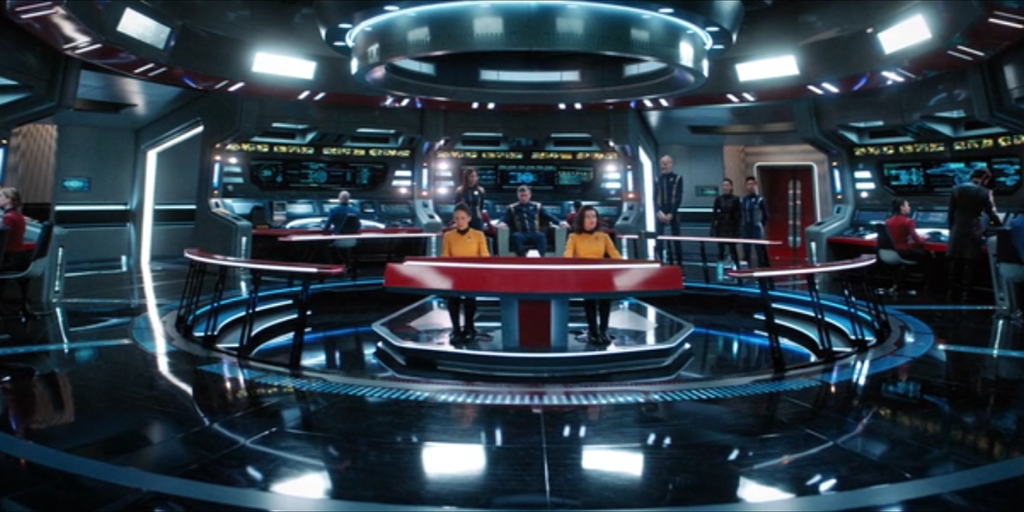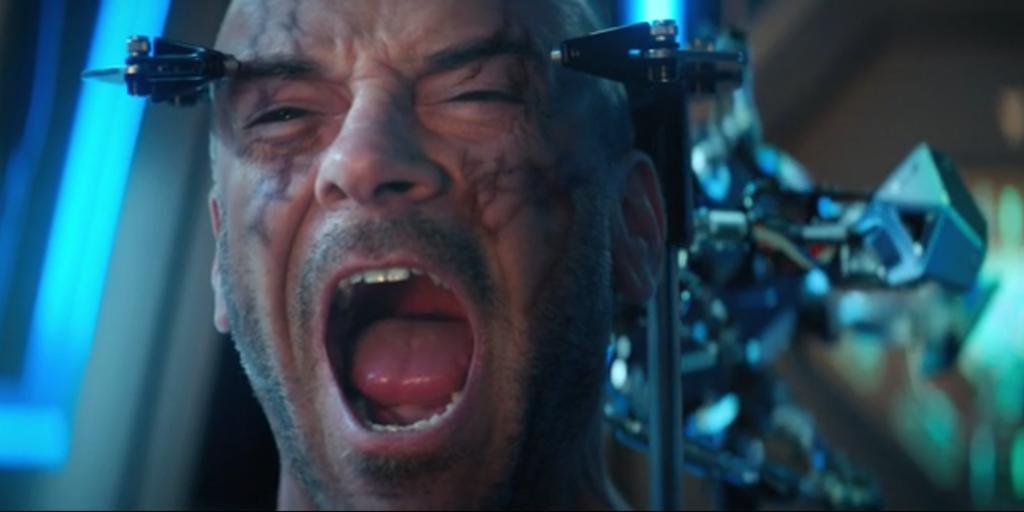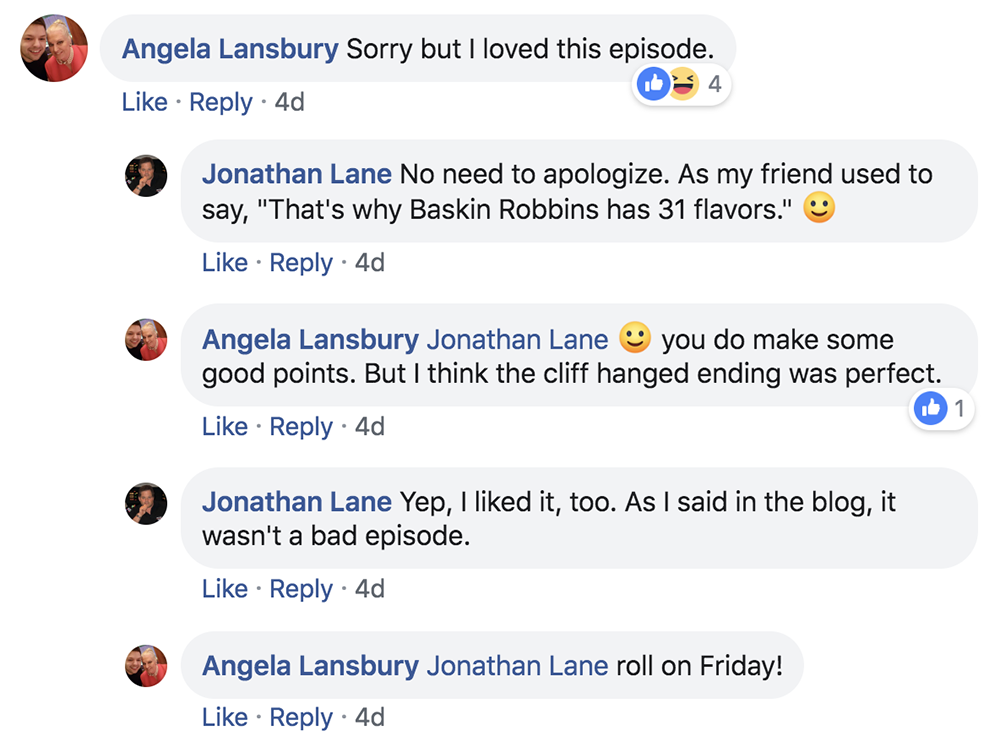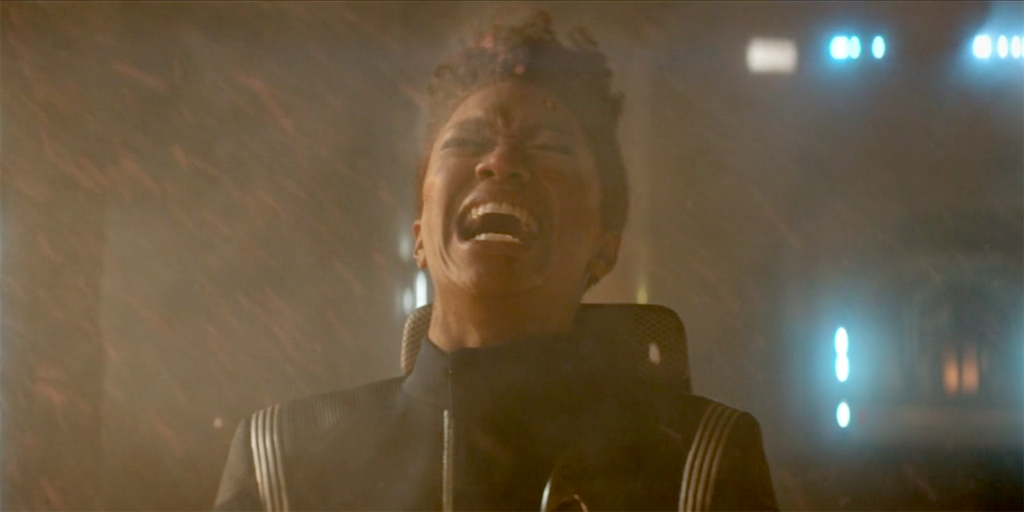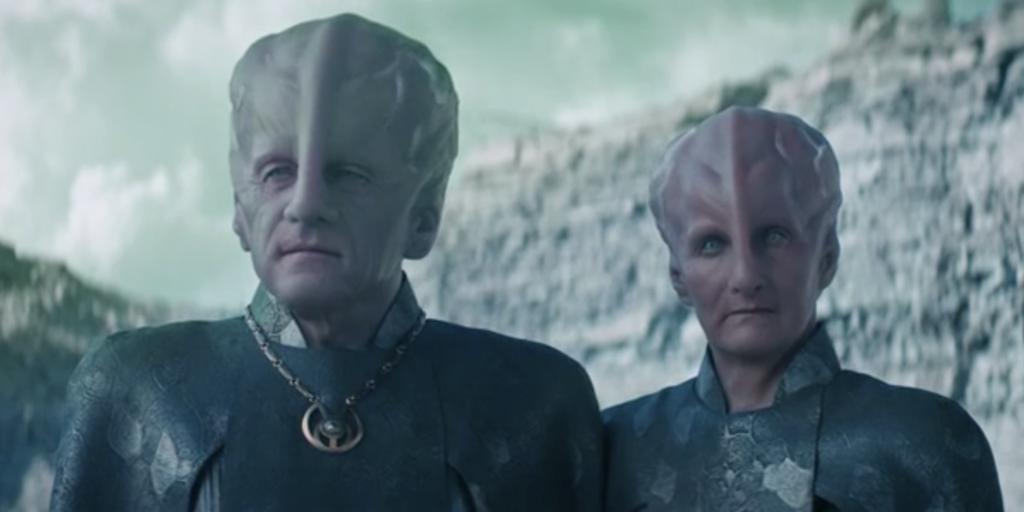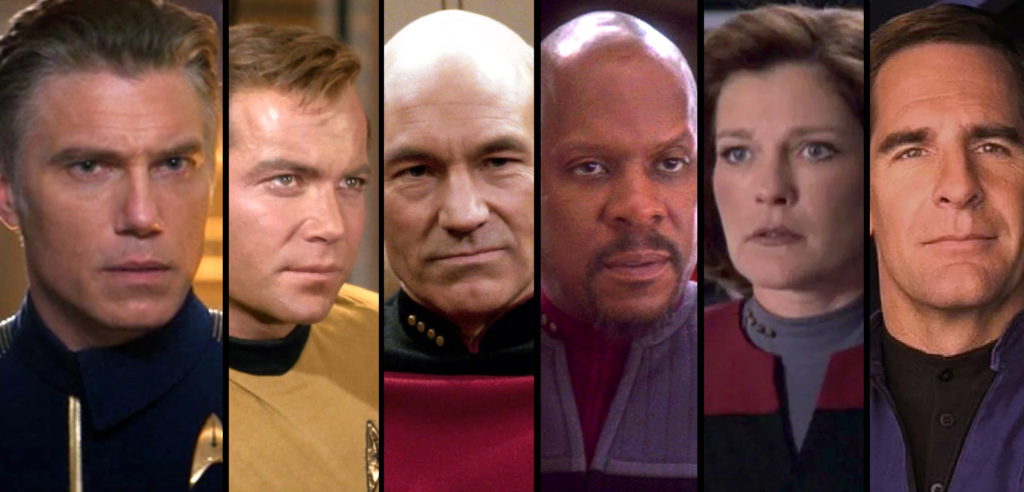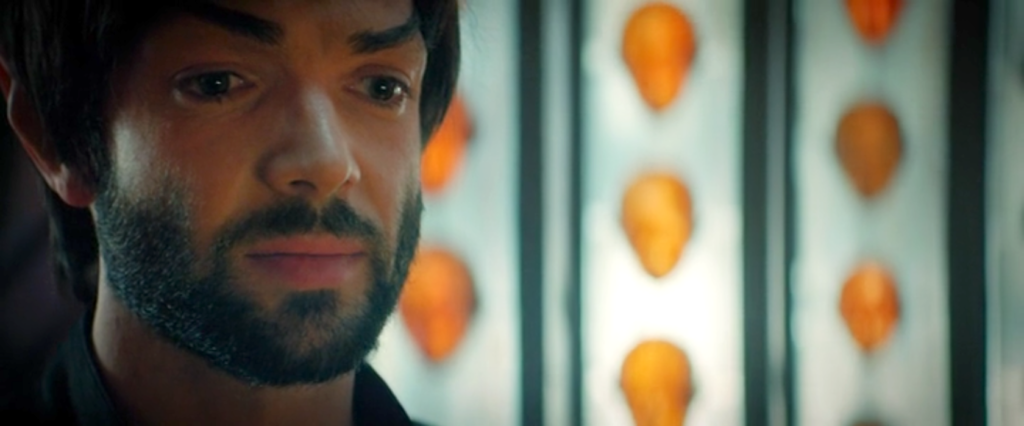SPOILERS MAKE YOU A BETTER PERSON!
Before I begin blasting away at the season two finale of STAR TREK: DISCOVERY, I will give credit where credit is due. The entire production team obviously worked VERY hard to make “Such Sweet Sorrow, Part 2” a fast-paced, well-acted, and visually stunning hour of television. It wrapped up a very complex season-long story arc without leaving any loose ends (that I noticed), and it was certainly an ambitious undertaking.
But as a Trekkie and, more basically, as a viewer, I finished the episode feeling angry and, to be honest, betrayed. And I’d like to tell you why.
Writers and their audiences make an “agreement” going in, a pact of trust, if you will. The writers ask that we viewers buy into what the writers are setting up in the narrative, and in exchange, the writers will create a compelling, suspenseful, emotionally engaging story to entertain us.
But in this episode, I felt that the tail (or the tale) was wagging the dog. The writers had to include certain scenes in order to cover the necessary tropes of an exciting, explosive season finale: death of a major character, cavalry to the rescue scene, hand-to-hand fight with the bad guy, etc. Nothing wrong with that in theory. But in order to hit those beats, the writers way too often had to violate the trust of the viewer. And it’s NOT simply that some scenes are inconsistent with “established” Star Trek canon. I’ve learned to expect that from this show, and I’ve mostly made my peace with it.
No, I am talking about violating the canon that the writers have already set up for themselves. And when I see these kinds of “sloppy” scenes (and there were a LOT of them this episode), I can only assume the writers simply don’t care that they’re writing something that makes no sense within their own narrative…either that or they think that their viewers don’t care.
Well, I care. And that’s why I’m sharing this longer-than-normal blog with you today…
Continue reading “Why the finale of ST: DISCOVERY left me feeling ANGRY and BETRAYED (editorial review)”

